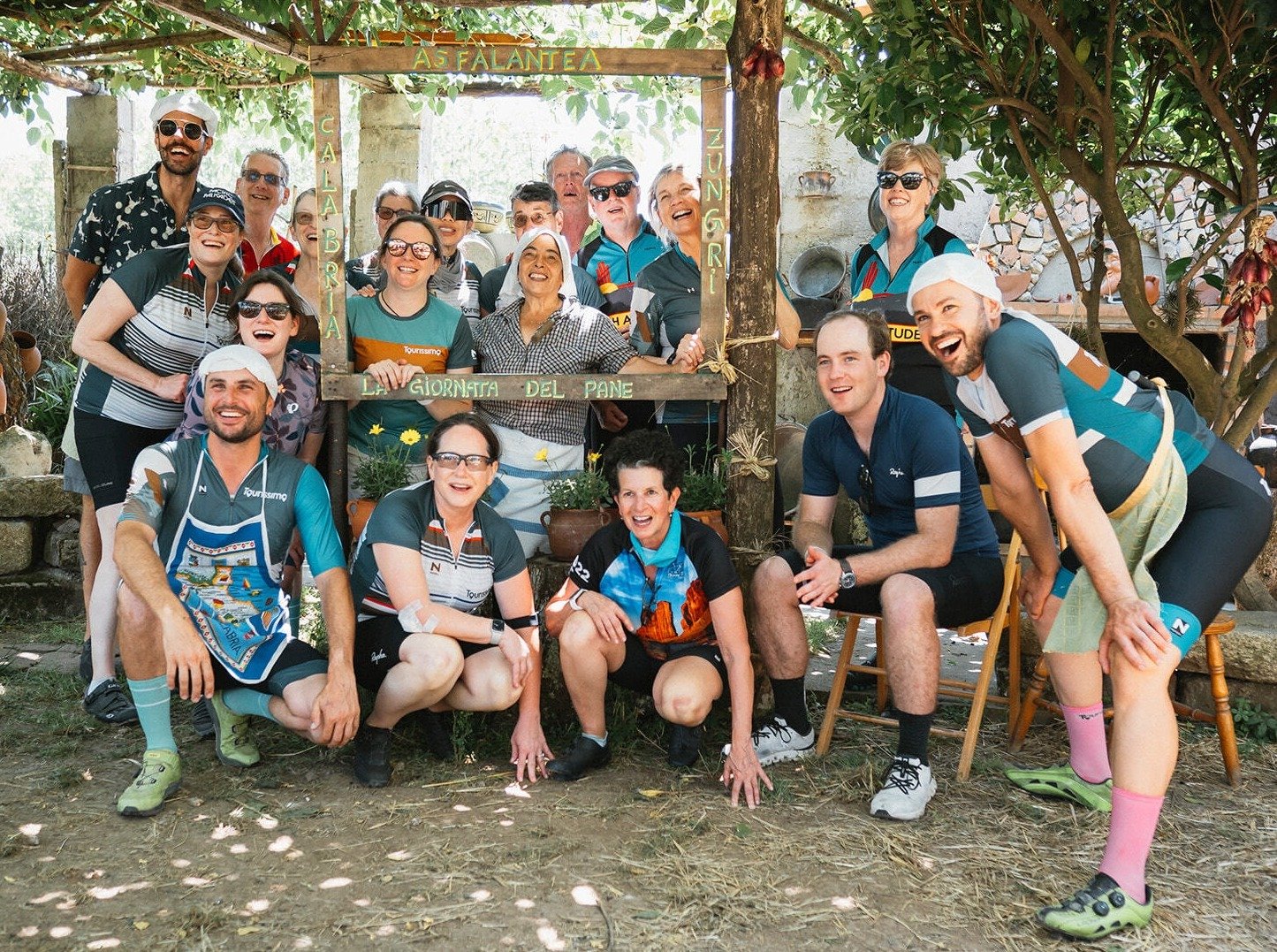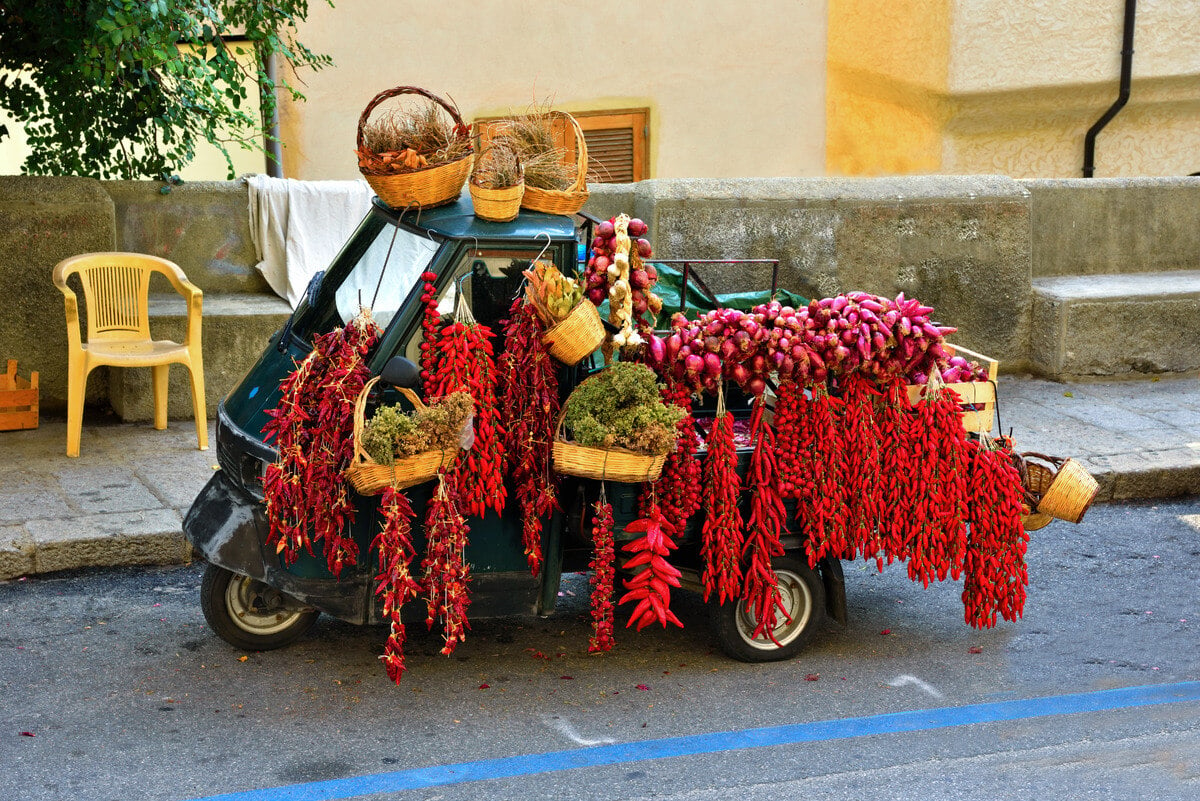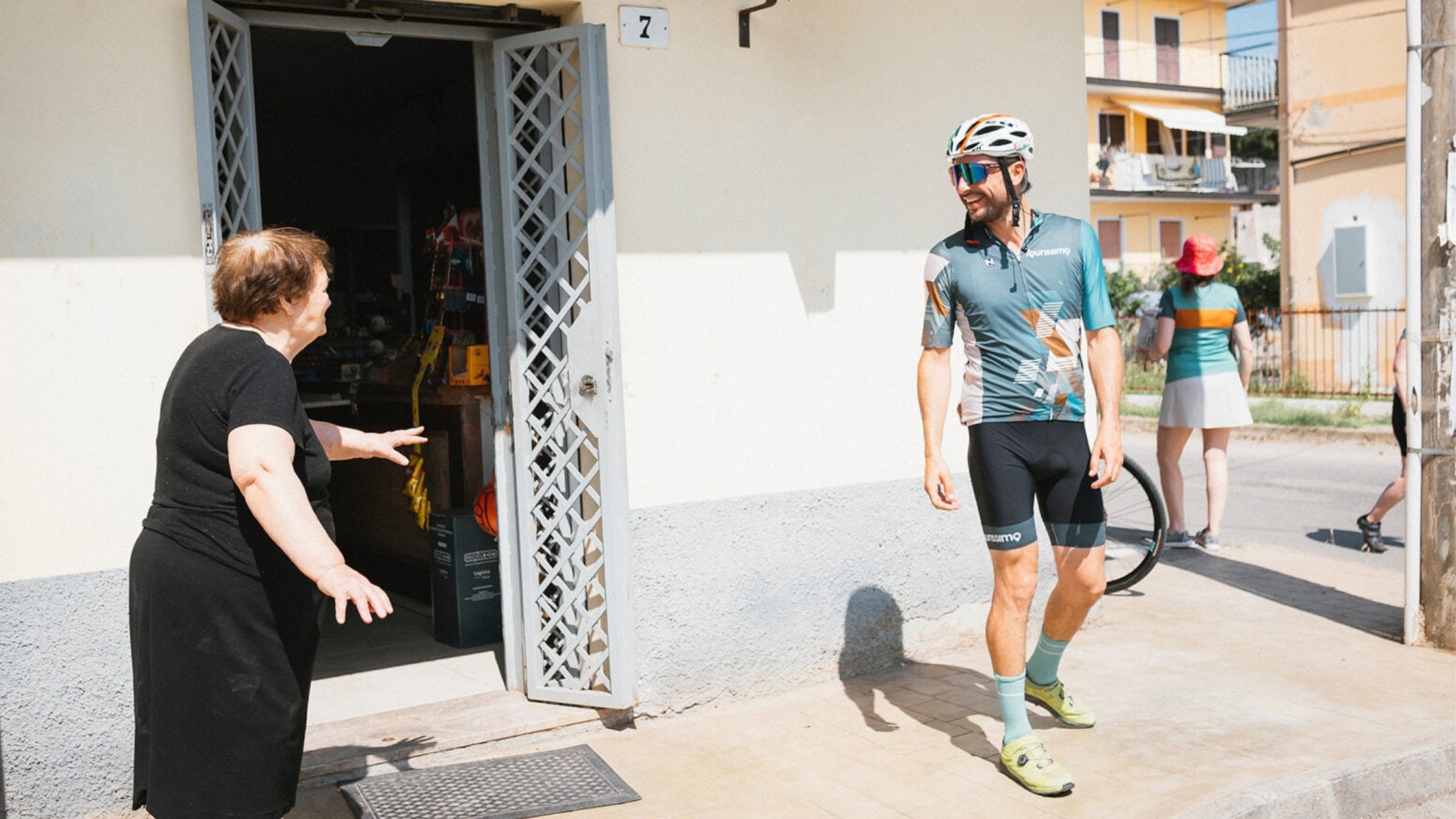Even in modern Italy, Easter is still the most unashamedly heartfelt holiday. It is also a time to partake in unusual parades, try special, celebratory food, and dive into traditions that go back hundreds and thousands of years.

Photo courtesy of Scopri Modica
Easter is the most important Christian holiday because it represents the resurrection of Christ, with all of the good things that came with that. But there are pagan holidays that predate Easter. In fact, pagan religions had a major celebration centered on the vernal equinox. In most cases there was no fixed date (same for Easter).
Easter is celebrated on the first Sunday after the first full moon of spring, and can therefore the date can vary from March 22nd to April 25th.
Did Christians take over this pagan holiday? Since it was forbidden to practice Christianity, all Christian holidays align to pagan holidays, so the customs have merged. Another example is November 1st, All Saints Day.
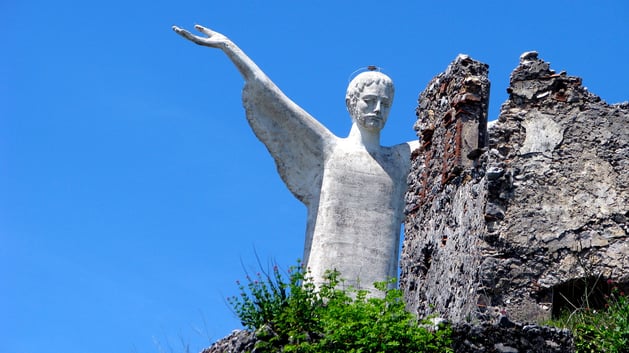
Easter week goes from Palm Sunday to Easter Sunday. Good Friday precedes Easter, and that is the day when Jesus was crucified, according to the Christian tradition.
In Italy the Monday after Easter is also a holiday. It’s called Pasquetta (little Easter). It appears that the Hebrew and Christian calendars got mixed up when it came to interpreting the old scripts. Luckily, the more favorable (at least that’s how I felt in school) interpretation prevailed and no one would now argue that Pasquetta (or Angel Monday) is not a holiday. In any case, on that day “after Easter” Christ’s tomb was found unattended and the big rock blocking the entrance removed. Magdalena and her friends rushed to spread the news after a quick chat with the angel that reassured them that that was a good thing and that Jesus had resurrected as he said he would. From then on it was mostly PR on the apostles' part.
That is the very rough summary. Although, religion is no longer the binding agent for Easter in Italy. Easter means long weekends, vacation, first dip in the Mediterranean.
We decided to write about Easter because you can look at it from different angles. It is a unique opportunity to explore Italy in terms of religion, folklore, and culinary traditions. There are also interesting cultural events planned around Easter.
In Italy we have all four distinctive seasons. Being right at the beginning of spring, this holiday features a true rebirth and not only in a figurative sense.
In other words, Easter is the stage (almost the excuse) for some outstanding reenactments, huge (Huge) family gatherings, picnics with friends and day trips to the countryside.
For foreigners, it’s a great time to visit and take a vacation that involves something of the Italian Eastern tradition.
Folklore lovers won’t be disappointed. Italy prides itself on striking the perfect balance between religious commemoration and memorable festivities
Choices are endless in Italy when it comes to local festivals and religious processions celebrating Easter. But in all fairness, the south of Italy with Sicily, Campania, Abruzzo, Puglia, and Sardinia has the most amazing celebrations where everyone is engaged. Fireworks, bonfires, confetti, and pastries put everyone in a good mood on Easter Sunday. Remember that Jesus was believed dead just three days earlier. All parades are about the almost unbearable mood swing that the resurrection provoked.
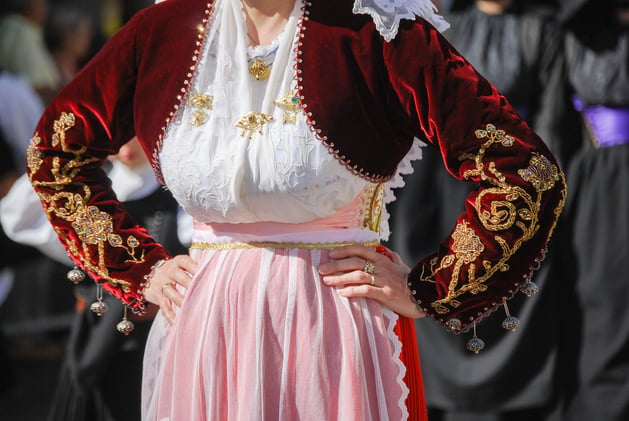
Our picks include the Modica Easter procession of Madonna Vasa-Vasa. It takes over the town located in Sicily, in the Baroque Val di Noto, an opportunity to explore the southeast corner of the island. Corso Umberto, Modica’s main street, can hardly contain the crowds of faithful cramming the street all the way to the church of St. Mary of Betlem to see the traditional "midday kiss" between the Madonna and the Christ Resurrected. Even the BBC stopped by during Easter, as shown in this interesting video shot for the Sicily Unpacked series:
For more videos on Sicily go to this blog article.
Another one of the most picturesque Easter processions in Italy takes place on the beautiful island of Ischia, in the gulf of Naples, and not far from Amalfi. Every year on Easter Sunday, along the main street of the village of Forio, the Corsa dell’Angelo (The Angel’s Run) begins in the late morning. The ritual dates back to the 17th century. Four statues, the Madonna, the Risen Christ, St. John the Apostle and the Angel, are carried during the procession. The event’s culmination is when the statue of the Madonna, her face covered by a white veil, meets that of Jesus, while onlookers throw confetti and sugar almonds all around.
In Salento (Puglia), we have la Quaremma, meaning Lent. At the end of Carnival, in order to mark the beginning of Lent, a puppet is hung from the town’s balconies and terraces, depicting an old, ugly woman resembling a witch, dressed in black. She holds a distaff and spindle for spinning wool in her right hand and an orange in her left hand, or sometimes at her feet, to symbolize frugality during this period. Seven feathers are stuck into the orange to represent the seven-week period of Lent. Each week one feather is removed until Easter Sunday, when the puppets are hung on a pole and burnt as a symbol of the Resurrection.
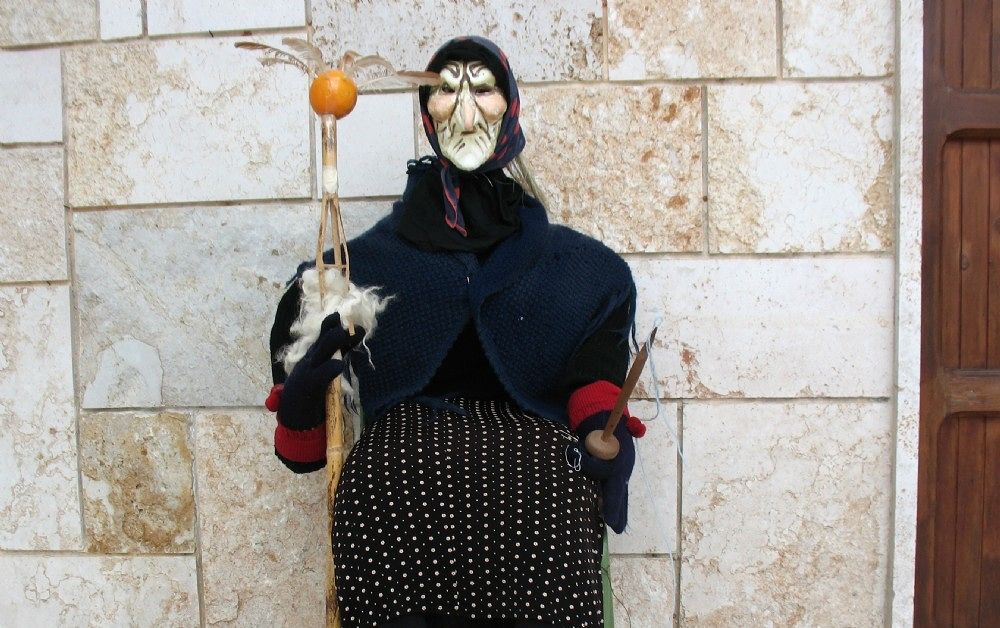
Photo courtesy of Lecce News 24
To describe the fabulous home-food prepared for the celebrations would require a whole cookbook. But trust me when I say it is to...resurrect for.
Easter is a wonderful time to explore Italy. Perhaps the most important holiday of all, Easter is celebrated for a full week, with rites starting on Palm Sunday and finishing on Easter Sunday, with the bonus holiday of Pasquetta.
And it does not make much of a difference if you are a religious person or what religion you profess. It is more about getting to be part of something very festive and heartfelt.



